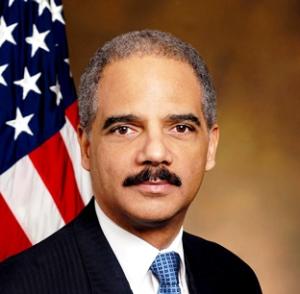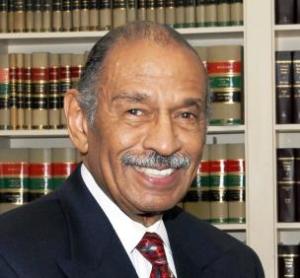Attorney General Eric Holder has taken the biggest step to reform civil asset forfeiture programs in years.
California localities continue to deal with medical marijuana, bills are showing up in the states, the Kettle Falls Five want their prosecutions ended, and more.
The year's first drug war death occurred Wednesday in Draper, Utah, during a scuffle as cops tried to arrest a man they suspected of using drugs.
A veteran cop gets caught with his hands in the cookie jar, jail guards go wild, and two different ex-cops go to prison for growing marijuana.
Oregon pot regulators are going on a listening tour, Oregon pot consumers are getting organized, a Minnesota Indian reservation ponders producing medical marijuana, UMass ends its student snitch program, and more.
Attorney General Holder announces a major civil asset forfeiture reform move, the NCAA will review its drug policies, a Vermont report on the impact of pot legalization has been released, and more.
New York has a marijuana legalization bill, New Hampshire ponders a study of legalization, Rhode Island patients get a vapor lounge, the DEA has another means of surveilling Americans, Indonesia's resort to the death penalty for drugs stirs controversy, and more.
State legislative sessions are getting underway, and drug policy-related bills are popping up all over. There's good, bad, and ugly.
The DEA will pay for using a woman's identity (and photos) to make a fake Facebook page, a Wyoming decrim bill is moving, Virginia is seeing CBD and medical marijuana bills, there's a hemp bill in Florida, the Vera Institute releases a report on New York sentencing reforms, and more.
This article was published in collaboration with AlterNet.

Attorney General Eric Holder (justice.gov)
State and local law enforcement agencies routinely resort to "adoption" as a means of circumventing state laws that mandate seized assets go to designated programs, typically a state's general fund or education fund. When a seizure is "adopted" by the feds, the seizing agency gets to keep 80% of the proceeds, with the federal government getting the rest.
"With this new policy, effective immediately, the Justice Department is taking an important step to prohibit federal agency adoptions of state and local seizures, except for public safety reasons," Holder said in a statement. "This is the first step in a comprehensive review that we have launched of the federal asset forfeiture program. Asset forfeiture remains a critical law enforcement tool when used appropriately -- providing unique means to go after criminal and even terrorist organizations. This new policy will ensure that these authorities can continue to be used to take the profit out of crime and return assets to victims, while safeguarding civil liberties."
While much asset forfeiture activity is related to drug cases, they are not included in the list of exceptions to the new policy barring "adoptions." Those public safety exceptions include firearms, ammunition, explosives, and materials related to child pornography.
The new policy does not impact asset forfeitures conducted by federal law enforcement, nor does it bar state and local law enforcement from conducting civil asset forfeiture under state law.

"Policing for profit" just took a big hit. (wikimedia.org)
Under the Justice Department's
Equitable Sharing asset forfeiture "adoption" program, state and local law enforcement has made more than 55,000 seizures of cash and property with a value of more than $3 billion since 2008.
Holder's move Friday is the boldest step to roll back sweeping police powers to seize goods and property since federal asset forfeiture began as tactic in the war on drugs in the 1980s. The Justice Department adopted the Equitable Sharing program in 1993.
Civil asset forfeiture -- the seizure of goods or property without having obtained a criminal conviction -- has come under increasing fire in recent years. Several asset forfeiture reform bills were filed in the last Congress, one has already been filed in the new Congress, and members from both parties are working jointly to draw up a bill to reform civil asset forfeiture.
The issue brought together libertarian-leaning groups like the Institute for Justice, which produced the highly critical study "Policing for Profit: The Abuse of Civil Asset Forfeiture," and left-leaning groups like the ACLU to press for reforms. They met with congressional staffers to seek changes last fall.
Just last Friday, a bipartisan group of legislators including Sen. Charles Grassley (R-IA) and Rep. John Conyers (D-MI) sent a letter to Holder calling on him to end the Equitable Sharing program.
Pressure mounted after a Washington Post investigative piece published in September found police had seized nearly $2.5 billion in cash from motorists without search warrants or indictments since September 11, 2001. In that investigation, the Post found that police routinely stopped drivers for minor traffic violations, then intimidated them into agreeing to warrantless searches and seized cash without evidence of criminal misconduct.

Rep. John Conyers (D-MI) is working on civil asset forfeiture reform legislation. (house.gov)
Holder's move is likely to exacerbate already strained relations between the Obama administration and law enforcement agencies. Police groups have expressed unhappiness with remarks both Holder and Obama made about controversial police killings in Ferguson, Missouri, and New York City.
And now, the administration is in effect taking money out of their pockets. More than 7,500 of the nation's 18,000 state and local police departments and joint task forces have participated in the Equitable Sharing program. And hundreds of departments and sheriff's offices have seizure proceeds accounting for more than 20% of their budgets.
The move will also hurt federal agencies that have been "adopting" the seizures, particularly the DEA and ICE. Federal law enforcement has pocketed $800 million under Equitable Sharing seizures without arrests or convictions since 2001.
This is the second major asset forfeiture reform at the federal level. Spurred by reports of abuses of asset forfeiture in the late 1990s, Congress passed the Civil Asset Forfeiture Reform Act of 2000. That bill originally contained a provision "ending the sharing of seizure proceeds between local police and federal agencies," but it was removed in the face of fierce opposition from police and prosecutors.
Since 9/11, with calls by federal officials for state and local law enforcement to surveil the nation's highways looking not only for drugs, but now for terrorists, the program only expanded. It didn't help that the Justice Department and the Department of Homeland Security paid out millions to private companies to teach police officers aggressive highway interdiction techniques emphasizing the importance of seizing cash.
The Equitable Sharing program and the aggressive interdiction techniques created what lawmakers a decade-and-a-half ago called "a perverse incentive" for police to concentrate more on seizing cash than seizing drugs. Now, Holder has butchered the cash cow.
back to top
California localities continue to deal with medical marijuana, bills are showing up in the states, the Kettle Falls Five want their prosecutions ended, and more. Let's get to it:
FederalOn Monday, a member of the Kettle Falls Five sought dismissal of his federal marijuana case. The widely watched case out of Washington state has been proceeding despite passage of the "CRomnibus" appropriations bill barring the use of federal funds to pursue medical marijuana patients and providers in states where it is legal. Now, Larry Harvey, 71, has filed a motion to dismiss the charges, with his attorney arguing that "federal prosecutions take away Washington's authority to determine for itself whether someone is in compliance with its laws or not."
California
On Monday, Berkeley began accepting applications for a fourth dispensary. The deadline for applications is March 20. Click on the link for more details.
On Tuesday, the San Diego city council tightened dispensary rules. The council approved requiring employee background checks and testing of products for mold and pesticides, but didn't move to regulate deliveries or create stricter rules for edibles or concentrates. The rules come as the city's first permitted dispensary is supposed to open in the spring. Numerous un-permitted ones exist, but the city has been trying to shut them down.
Also on Tuesday, the Rancho Cordova city council approved a ban on outdoor grows and indoor grows if children are present. The measure was approved 5-0 and will take effect in 30 days.
Also on Tuesday, the Redding city council decided not to try to prohibit outdoor grows. Councilmembers said they wanted to wait for the state and the federal government to figure out their medical marijuana policies first.
Florida
On Monday, the state chose its medical marijuana rulemakers. The state Office of Compassionate Use has selected a 12-member panel to craft rules for growing and distributing low-THC, high-CBD medical marijuana under a state law passed last year. The panel will meet during the first week of February to set up a regulatory structure for five nurseries that will be selected to grow, process, and distribute the medicine.
Georgia
Last Friday, a CBD medical marijuana bill died. Rep. Allen Peake's House Bill 1, which would have allowed for the use of high-CBD cannabis oil to treat seizures in children, has died before even being introduced. The bill died after Gov. Nathan Deal (R) announced his support for another CBD bill, which is yet to be written.
Hawaii
On Wednesday, the Health Department took over the medical marijuana program. A 2013 law transferring control of the state's medical marijuana program from the Department of Public Safety to the Department of Health is now in effect. Although the program officially became part of the Health Department on January 1, it took until now for the transfer to be complete. For more detail on other program changes, as well as times for public hearings on new regulations, click on the link.
Kansas
Last Friday, medical marijuana supporters rallied in Topeka. Several dozen medical marijuana supporters were joined by a pair of Democratic lawmakers at a statehouse rally to call for legalizing the medicinal use of the herb. The two legislators, Rep. Gail Finney (D-Wichita) and Sen. David Haley (D-Kansas City), filed medical marijuana bills prior to the start of this year's legislative session. Similar measures have been filed since 2009, but none of them have made it to the discussion stage in committee.
Minnesota
Last Thursday, a Minnesota Indian tribe okayed a study on medical marijuana. The tribal council for the Red Lake Band of Chippewa Indians has approved a study what economic benefits could accrue to the tribe by allowing the production of medical marijuana and hemp. Tribal leaders weren't interested in recreational marijuana, but saw job growth and economic development opportunities in producing medical marijuana or hemp. The federal government cleared the way for Indian reservations to participate in marijuana business last month, but so far, only one tribe, the Pinole Pomos in Northern California, has announced plans to move forward.
Rhode Island
On Saturday, the state's first vapor lounge opened. Rhode Island patients can now have a place where they can gather and enjoy their medicine together. The Elevated vapor lounge opened in Providence Saturday.
Virginia
As of Wednesday, there were at least three medical marijuana or CBD bills before the legislature. There are at two new bills aiming to make the use of high-CBD, low-THC medical marijuana legal in the Old Dominion. Filed by Sen. David Marsden (D-Fairfax), Senate Bill 1235 would legalize CBD cannabis oil and THC-A oil. Delegate David Albo (R-Fairfax) has filed House Bill 1445, which would also legalize CDB cannabis oil. A third bill, House Bill 1605, filed by Delegate Kenneth Plum (D-Reston) would legalize marijuana.
Washington
Last Monday, a state law banning medical marijuana advertising was ruled unconstitutional. Pierce County Superior Court Judge Elizabeth Martin has ruled unconstitutional a state law that prohibits the advertising of medical uses of marijuana. The law was both vague and overly broad, she ruled, concluding that it violated both the state and federal constitutions. The case is Havsy v. Department of Health.
[For extensive information about the medical marijuana debate, presented in a neutral format, visit MedicalMarijuana.ProCon.org.]
back to top
A man was shot and killed by a West Valley City, Utah, police officer who was attempting to arrest him on drug charges Wednesday. Jeffrey Nielson, 34, becomes the first person to die in US domestic drug law enforcement operations so far this year.
This is the fifth year the Drug War Chronicle has tallied drug war deaths. There were 54 in 2011, 63 in 2012, 41 in 2013, and 39 in 2014.According to the Salt Lake Tribune, citing police sources, a West Valley City police officer on his way to work Wednesday morning noticed a "suspicious" black SUV with a man slumped over the wheel. The officer called Draper police for backup, and two more officers arrived minutes later.
The officers were about to arrest Nielson on suspicion of a narcotics violation when he broke free and produced a butcher knife while still inside in the SUV.
"When the struggle ensues inside the cab of the [SUV], there's [four] officers on the driver's side attempting to take the gentleman back out of the car," Draper Deputy Police Chief John Eining said. "And that's when the knife is produced."
One of the officers then fired multiple shots, killing Nielson.
Eining said that while an investigation is ongoing, the officers "did everything they could do in this situation" and acted appropriately.
"We have an officer that recognized a threat and within seconds, he had to identify the threat, and the danger that that person posed to the other officers involved, and had to act on that threat," Eining said. "And again, this is an incident that involved deadly force by a suspect, and was met by deadly force by an officer."
Eining said drugs were found, but he did not say what kind or in what quantity.
Nielson had a lengthy criminal record, including previous drug convictions.
back to top
A veteran cop gets caught with his hands in the cookie jar, jail guards go wild, and two different ex-cops go to prison for growing marijuana. Let's get to it:
In Prescott Valley, Arizona, a Prescott Valley police commander resigned last Friday as he was being investigated for stealing prescription drugs that had been turned in by the public. Commander Arthur Askew is accused of stealing pills from the drug storage fault in the evidence room, and police had video of him doing it. The department has asked local prosecutors to conduct a criminal review of the case.In East Madison, Maine, a Somerset County Jail guard was arrested last Friday after an investigation into contraband at the jail. Alexender Jordon, 21, went down after a search warrant executed at his home turned up evidence he had supplied Suboxone strips to one inmate and tobacco products to two others. He is charged with trafficking Suboxone, a felony, and trafficking tobacco, a misdemeanor. At last report, Jordon was residing at his former place of employment.
In Michigan City, Indiana, an Indiana state prison guard was arrested last Saturday after he aroused suspicions during a routine shakedown as he arrived at work. Officer Gordon Dennis's car was then searched, and investigators found two cell phones, a cell phone watch, and a substance that appeared to be synthetic marijuana. He is charged with attempting to traffic with an offender. At last report, he was in the LaPorte County Jail.
In Lutz, Florida, a former Florida state prison guard was arrested Tuesday on charges he allowed inmates on outside work crews to drink, use drugs, and have "conjugal visits in the woods" with prostitutes. Henry Blackwelder went down after one of his favored inmates escaped. Blackwelder didn't report the escape for three hours, but investigators still found empty cans of margarita drinks and malt liquor and empty packages of synthetic marijuana, as well as a blanket used for hook-ups. Blackwelder resigned after the escape, but it later emerged that he was using his work crews and a pair of strippers to smuggle the contraband into the prison. He now faces charges of official misconduct, unlawful compensation for official behavior and smuggling contraband into a state correctional facility. He was released on bail Wednesday.
In Buffalo, New York, a former Buffalo police officer was sentenced last Wednesday to five years in federal prison for running a marijuana-growing operation while he was an officer. Jorge Melendez oversaw a pot-growing operation of more than a thousand plants and sometimes visited it while in uniform. Prosecutors said he made about $80,000 in the two years the grow was in operation, and he agreed to forfeit a Chevy Suburban, a Harley-Davidson motorcycle, a speedboat, and seven firearms. He had copped to one count of conspiracy to grow more than 99 marijuana plants.
In Hagatna, Guam, a former Guam police officer was sentenced last Thursday to eight years in prison for growing marijuana while employed as a cop. Roy Pablo had been arrested as part of an investigation into a grow ring in November 2013 and was convicted on cultivation charges in October.
back to top
Oregon marijuana regulators are going on a listening tour while consumers get organized, a Minnesota Indian reservation ponders producing medical marijuana, UMass ends its student snitch program, and more. Let's get to it:

This opiate maintenance drug could be in wider use. (bluelight.org)
Oregon Liquor Control Board on Pot Policy Listening Tour. The board, which is charged with regulating marijuana as well as liquor, has set the first two stops on its statewide listening tour designed to elicit public comment on proposed rules and regulations. The first two stops will be next Thursday in Baker and Pendleton. Click on the link for event details.
NORML Forms Portland Chapter to Lobby for Marijuana Consumer Interests. The National Organization for the Reform of Marijuana Laws (NORML) has formed a Portland, Oregon, chapter to lobby for the interests of pot smokers as the state begins drafting rules for legal marijuana there. The Portland chapter is headed by radio host and long-time marijuana activist "Radical" Russ Bellville. The group will push to ensure that pot smokers are "provided the same rights, privileges, and responsibilities as adult alcohol and tobacco consumers, whenever practical."
Medical Marijuana
Minnesota Indian Tribe Okays Study on Medical Marijuana, Hemp. The tribal council for the Red Lake Band of Chippewa Indians has approved a study what economic benefits could accrue to the tribe by allowing the production of medical marijuana and hemp. Tribal leaders weren't interested in recreational marijuana, but saw job growth and economic development opportunities in producing medical marijuana or hemp. The federal government cleared the way for Indian reservations to participate in marijuana business last month, but so far, only one tribe, the Pinole Pomos in Northern California, has announced plans to move forward.
Harm Reduction
Obstacles to Wider Use of Suboxone. The Washington Post has a nice piece on bureaucratic bottlenecks blocking the wider use of the opiate maintenance medication suboxone, which is safer than methadone. Only doctors who have been trained and approved by the DEA can prescribe it, and only to a limited number of patients. Click on the link for much more.
Law Enforcement
Supreme Court Hears Deportation Case Hinging on Whether a Sock is Drug Paraphernalia. The US Supreme Court Wednesday held a hearing in the case of Moones Mellouli, a legal permanent US resident, who was ordered deported after being caught with four Adderall pills and eventually accepting a deal to plead guilty to possession of drug paraphernalia -- the sock in which the pills were hidden. His is the fourth case in which the high court has looked at deportations for minor drug offenses; in the first three, the court ruled against the government. Given the incredulous tenor of the questions from the justices, it looks like the government may lose this one, too. Click on the link for more.
UMass Amherst Will Quit Using Student Snitches. The school's chancellor has ended its program allowing campus police to use students as confidential informants. The move comes after a student used as a snitch by campus cops died of a heroin overdose. Chancellor Kumble Subbaswamy said using students as snitches is "fundamentally inconsistent with our core values."
back to top
Attorney General Holder announces a major civil asset forfeiture reform move, the NCAA will review its drug policies, a Vermont report on the impact of pot legalization has been released, and more. Let's get to it:

"Policing for profit" just took a big hit thanks to Attorney General Holder. (wikimedia.org)
No Marijuana Stores in Alaska's Capital Until October. The City and Borough of Juneau Assembly has approved a moratorium on marijuana-related businesses until October 19. City officials will not consider any land use or other permits until the moratorium expires, meaning pot businesses won't be able to grow crops or prepare for retail sales until then.
Report on Impact of Legalization in Vermont Released. Vermont could make tens of millions of dollars in marijuana revenues a year, according to a new comprehensive report released today. The report was commissioned by the state legislature and serves as a policy guide as the state considers legalization. It lays out various options for legalization.
Medical Marijuana
Georgia CBD Medical Marijuana Bill Dead. Rep. Allen Peake's House Bill 1, which would have allowed for the use of high-CBD cannabis oil to treat seizures in children, has died before even being introduced. The bill died after Gov. Nathan Deal (R) announced his support for another CBD bill, which is yet to be written.
Kansas Medical Marijuana Supporters Rally in Topeka. Several dozen medical marijuana supporters were joined by a pair of Democratic lawmakers at a statehouse rally today to call for legalizing the medicinal use of the herb. The two legislators, Rep. Gail Finney (D-Wichita) and Sen. David Haley (D-Kansas City), filed medical marijuana bills prior to the start of this year's legislative session. Similar measures have been filed since 2009, but none of them have made it to the discussion stage in committee.
Asset Forfeiture
Attorney General Holder Blocks Federal Asset Forfeiture Sharing Program. In the boldest civil asset forfeiture reform move in years, Holder has barred federal agencies from participating in the Equitable Sharing asset forfeiture program, under which state and local police seeking to circumvent state asset forfeiture laws would let federal agencies "adopt" the seizures. Under the program, the police agency got up to 80% of the proceeds, while state laws typically require them to be deposited in designated accounts, such as the general fund or education funds. Click on the link for the full story.
Drug Policy
NCAA to Consider Revamping Its Drug Policy. In the wake of criticism for suspending a University of Oregon football player for pot smoking just before the collegiate national championship game, and after its Committee on Competitive Safeguards and Medical Aspects of Sports informally recommended it, the NCAA will examine proposed changes to its policies for testing both performance-enhancing and recreational drugs. The NCAA's standard for marijuana, for instance, it 10 times that used for airline pilots.
International
Stratfor Report on Mexican Drug Trafficking. The Austin-based private intelligence group has released a free, condensed version of its annual Mexican drug cartel report. Check it out at the link.
Indonesia Set to Execute Six Drug Convicts Sunday. New President Joko Widodo appears to be living up to his vow to not grant clemency to death row drug prisoners. The Indonesian Attorney General's Office announced Friday that it will execute six convicted drug traffickers Sunday. Widodo signed off on the executions last month.
back to top
New York has a marijuana legalization bill, New Hampshire ponders a study of legalization, Rhode Island patients get a vapor lounge, the DEA has another means of surveilling Americans, Indonesia's resort to the death penalty for drugs stirs controversy, and more. Let's get to it:

The beach at Bali. Indonesia is a major tourist destination, but also has the death penalty for drug offenses. (wikimedia.org)
New York Legalization Bill Filed. State Sen. Liz Krueger (D-Manhattan) has filed a bill to legalize marijuana. SO1747 would allow for the taxation and regulation of marijuana commerce. Notably, it also sets the age for legal marijuana use at 18, instead of the more common 21.
New Hampshire Hearing on Legalization Study Committee. A bill that would establish a study committee on marijuana legalization got a hearing today. The bill is HB 150.
Medical Marijuana
Florida Chooses Medical Marijuana Rulemakers. The state Office of Compassionate Use has selected a 12-member panel to craft rules for growing and distributing low-THC, high-CBD medical marijuana under a state law passed last year. The panel will meet during the first week of February to set up a regulatory structure for five nurseries that will be selected to grow, process, and distribute the medicine.
Rhode Island's First Vapor Lounge Opens. Rhode Island patients can now have a place where they can gather and enjoy their medicine together. The Elevated vapor lounge opened in Providence Saturday.
Asset Forfeiture
Colorado Bill Would End Civil Forfeiture. Freshman state Sen. Laura Woods (R-Arvada) has filed a bill that would stop police from seizing assets unless the owner is convicted of a crime. Senate Bill 2015-006 would end civil forfeiture without a conviction unless there is a settlement with all parties, including the owner, to agree to give up the property. Woods said the bill is an effort to block "policing for profit."
Law Enforcement
DEA Kept Secret Metadata Database. The DEA kept a secret database of telephone metadata -- entirely separate from the NSA program revealed by Edward Snowden -- covering calls between parties in the US and ones in other countries. The information, contained in a three-page,partially-redacted affidavit from a top DEA official, was revealed in a court filing last week in a case involving trade with Iran. The DEA used "administrative subpoenas" authorized under a federal drug trafficking statute to collect the data. The program was ended in 2013. Click on the link for much more detail.
International
Fury as Indonesia Executes Six Drug Traffickers, Including Five Foreigners. As promised by President Joko Widodo, Indonesia put to death six convicted drug traffickers Sunday, including citizens of Brazil, Malawi, Nigeria, the Netherlands, and Vietnam. Brazil and the Netherlands reacted angrily, with both countries recalling their ambassadors from Jakarta. Brazilin President Dilma Roussef said she was "distressed and outraged" after Indonesia ignored her last minute plea for clemency. "Using the death penalty, which is increasingly rejected by the international community, seriously affects relations between our countries," the Brazilian government said in a statement. The Dutch government called the executions "terribly sad" and emphasized that it remains opposed to the death penalty. But President Widodo defended the executions in a Facebook post: "The war against the drug mafia should not be half-hearted measures, because drugs have really ruined the good life of the drug users and their families," he said.
back to top
State legislative sessions are getting underway, and drug policy-related bills are popping up all over. There's good, bad, and ugly. Let's get to it:

Heroin is on the legislative agenda in a number of states, including Virginia. (wikimedia.org)
Alaska Bill Would Delay Regulations for Marijuana Concentrates. Rep. Paul Seaton (R-Homer) last Friday filed House Bill 59, which would delay regulations for concentrates by up to a year. That conflicts with the language of the marijuana legalization initiative, and has legalization supporters unhappy. Click on the story link for more details.
A Big Batch of Pot Bills in Maine. There are at least 15 marijuana-related bills pending before the state legislature, including one that would legalize, tax, and regulate the weed. Rep. Dianne Russell (D-Portland), sponsor of the legalization bill, is also sponsoring four medical marijuana bills. Another bill, sponsored by the Department of Public Safety, would set a limit on the amount of THC drivers could have in their systems. Click on the link for more detail.
Nebraska Bill Would Make Pot Concentrates a Felony. The state decriminalized pot possession in the 1970s, but a bill being pushed by the state attorney general's office, LB 326, would begin to undo that by making possession of marijuana concentrates not just a misdemeanor, but a felony, punishable by up to five years in state prison. It's been referred to the Judiciary Committee.
Responsible Ohio Lays Out its Vision for Legalization. The group wants to put a constitutional amendment to legalize pot on the November 2015 ballot, and today announced details of its proposal. The initiative would create a Marijuana Control Commission, allow for 10 licensed commercial grows, allow for marijuana manufacturing facilities that would sell only to retailers, allow for nonprofit medical marijuana dispensaries, and would tax marijuana at a 15% rate. Click on either link for more.
Heroin
Virginia Legislature Sees Heroin Bills Filed. At least four bills have been filed that seek to address the toll of heroin addiction and overdoses. House Bill 1638 would make people who provided drugs that resulted in a fatal overdose liable for a second degree murder charge; House Bill 1500 is a limited 911 Good Samaritan bill; House Bill 1458 would expand access to the overdose reversal drug naloxone, and Senate Bill 817 would expand the state's prescription monitoring program to allow probation and parole officers to access the database.
Asset Forfeiture
Wyoming Asset Forfeiture Reform Bill Advances to Senate Floor. A bill that would bar police from seizing people's property unless they are charged with a felony drug crime passed out of the Senate Judiciary Committee Monday and now awaits a Senate floor vote. Senate File 14 drew late opposition from the offices of Gov. Matt Mead (R) and Attorney General Peter Michael (R), which claimed they would have to charge more people with felonies if they couldn't just take their money, but legislators expressed irritation at the late objections when the bill has been in process for months.
Drug Policy
Wyoming Bill Would Lighten Up on Repeated Drug Possession Punishments. Under current law, people convicted a third time in their lives for misdemeanor drug possession face felony penalties. House Bill 109 would change state law to make the felony penalties apply on the forth conviction, and the previous convictions would have to have happened in the past five years, instead of throughout the convict's lifetime, which is current law. There are at least three other bills relating to drug possession before the legislature; click on the title link to read more.
Drug Testing
Montana Food Stamps Drug Testing Bill Filed. Rep. Randy Pinocci (R-Sun River) Monday filed House Bill 200, which would require all applicants for the Temporary Assistance for Needy Families (TANF, the food stamps program) to be screened for evidence of drug abuse. Those whose screening suggests a possible issue would be required to undergo a drug test. People who test positive for drugs wouldn't be allowed to receive benefits unless they agreed to complete a 30-day drug treatment program.
Harm Reduction
Michigan Cops Start Carrying Overdose Reversal Drug. Deputies in Oakland County have begun carrying naloxone opioid overdose reversal kits in a bid to reduce overdoses. That was made possible by the passage last year of Senate Bill 1049, which allowed law enforcement agencies to distribute the drug to police who have been trained to use it.
International
German Cops Tired of Messing Around With Small Time Drug Crimes. The country's police union is calling for "soft" drug offenses and other minor crimes to be decriminalized so police can focus on serious crime and terrorism. German police are also faced with shrinking numbers due to mandatory retirement of officers.
back to top
The DEA will pay for using a woman's identity (and photos) to make a fake Facebook page, a Wyoming decrim bill is moving, Virginia is seeing CBD and medical marijuana bills, there's a hemp bill in Florida, the Vera Institute releases a report on New York sentencing reforms, and more. Let's get to it:

A faked Facebook page will cost the DEA $134,000. (facebook.com)
Wyoming Decriminalization Bill Wins Committee Vote. The House Judiciary Committee has approved House Bill 29, which would decriminalize the possession of up to an ounce of pot. Fines would be $250 for less than a half ounce and $500 for more. The bill now awaits a House floor vote.
Medical Marijuana
Kettle Falls Five Defendant Seeks Dismissal in Federal Medical Marijuana Case. The widely watched case out of Washington state has been proceeding despite passage of the "cromnibus" appropriations bill barring the use of federal funds to pursue medical marijuana patients and providers in states where it is legal. Now, Larry Harvey, 71, has filed a motion to dismiss the charges, with his attorney arguing that "federal prosecutions take away Washington's authority to determine for itself whether someone is in compliance with its laws or not."
Hawaii Health Department Takes Charges of Medical Marijuana Program. A 2013 law transferring control of the state's medical marijuana program from the Department of Public Safety to the Department of Health is now in effect. Although the program officially became part of the Health Department on January 1, it took until now for the transfer to be complete. For more detail on other program changes, as well as times for public hearings on new regulations, click on the link.
Virginia Legislature Sees CBD, Medical Marijuana Bills. There are at two new bills aiming to make the use of high-CBD, low-THC medical marijuana legal in the Old Dominion. Filed by Sen. David Marsden (D-Fairfax), Senate Bill 1235 would legalize CBD cannabis oil and THC-A oil. Delegate David Albo (R-Fairfax) has filed House Bill 1445, which would also legalize CDB cannabis oil. A third bill, House Bill 1605, filed by Delegate Kenneth Plum (D-Reston) would legalize marijuana.
Washington State Law Banning Medical Marijuana Advertising Unconstitutional, Court Rules. Pierce County Superior Court Judge Elizabeth Martin has ruled unconstitutional a state law that prohibits the advertising of medical uses of marijuana. The law was both vague and overly broad, she ruled, concluding that it violated both the state and federal constitutions. The case is Havsy v. Department of Health.
Hemp
Florida Hemp Bill Filed. Rep. Michelle Rehwinkel-Vasalinda (D-Tallahassee) has introduced a bill that would legalize hemp production in the state. The bill is House Bill 363. Activists with the Florida Cannabis Action Network (CAN) are seeking a Senate sponsor.
Sentencing
Vera Institute of Justice Report on New York Sentencing Reforms. The report examines 2009 reforms to the Rockefeller drug laws that removed mandatory minimums for some drug offenses and expanded eligibility for treatment instead of incarceration. The report found a 35% percent increase in the rate of diversion to treatment; lower rates of re-arrest in such cases; which was associated with lower rates of rearrest, and fewer defendants sentenced to jail, time served, or "split sentence" -- a combination of jail and probation. However, most drug arrests still did not lead to diversion, and implementation varied widely across boroughs.
Law Enforcement
DEA Will Pay $134,000 to Woman It Used in Fake Facebook Page. The Justice Department has settled a civil suit brought against the DEA by a Watertown, New York, woman whose identity and photos were used by a DEA agent to create a fake Facebook page in her name to catch drug fugitives. Sondra Arquiett's phone had by seized by the Agenty Tim Sinnigen during a 2010 drug arrest, and the agent posed as her on Facebook without her consent. "The photographs used by Sinnigen included revealing and/or suggestive photographs of (Arquiett), including photographs of (her) in her bra and panties. Sinnigen also posted photographs of (Arquiett's) minor child and her minor niece to the Facebook page." The Justice Department will pay $134,000 to make this go away.
International
Vietnam Sentences Eight to Death for Heroin Trafficking. Eight people have been sentenced to die for trafficking 416 pounds of heroin in Vietnam. The trial in People's Court in Ho Binh province ended Monday. Six other defendants were sentenced to life in prison, and 17 others jailed for terms ranging from six to 20 years. Vietnam has some of the world's toughest drug laws.
Stratfor's Mexico Cartel Map. The private, Austin-based intelligence concern has released its latest map of Mexican cartel activity. Despite constant changes in the organized crime scene, Stratfor says, cartel activity remains based in three geographic locations: Sinaloa, Tamaulipas, and the Tierra Caliente in Michoacan and Guerrero. Click on the link for more.
back to top









